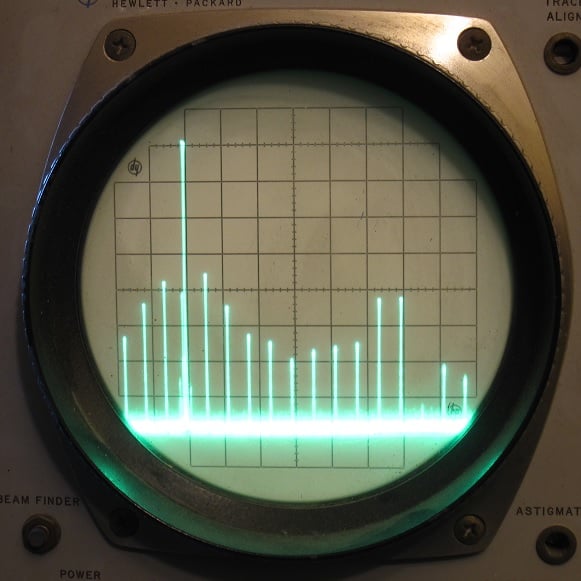Why does every small appliance or useful home electronics item have the BRIGHTEST LEDs in them?
I bought a new fan for our bedroom Sunday. It has 4 speed settings, and LEDs to display which setting you’re on.
Just like every other electrical device in our bedroom, I had to cover the LEDs with electrical tape because they are TOO DAMM BRIGHT. That one light was more than bright enough for me to see in the room with all the lights off.
I can’t sleep well if there’s a lot of light like that, especially blue light, and it’s like every fucking electronics manufacturer used the same extra bright blue LEDs.
All of our power strips have them. Same brightness.
The fans have them.
Don’t even get me started on digital clocks and the plague of bright LEDs that they bring about
Many charging plugs have them built into the plug itself.
Even some fucking light switches have them now!
I have about 6 different things in our bedroom that have electrical tape over their completely unnecessary LEDs.
Why has this become such a common thing? Is this really something most people want? To have a room that is never actually dark even with the lights turned off?
Electrical tape to black it out.
Painters tape to dim it.
The electrical tape approach is what I did and it did wonders. Went from having a myriad of green and blue LEDs on my fans/portable AC/etc to complete wonderful darkness when I retired for the night. Made a distinct difference in my ability to fall asleep faster at night. I hate having lights when going to bed. Darkness or bust.
You can actually buy tinted tape to dim them without completely blacking them out. So you can take your clock from “bright enough to keep your entire bedroom lit” to “just bright enough to read in the dark.”
Found out while watching Technology Connections. Bright blue monochromatic LEDs are one of his biggest pet peeves, and he mentioned the tinted tape off-hand in one of his videos.
Bingo, there it is. Thanks!
I bought some pre-cut led dimming stickers on a sheet. Any new electronics that come into my house get one. As someone who likes to sleep in near complete darkness it’s a must have.
Yep I have a pack of various shapes and sizes for dimming LEDs. You just stick it over the light. Works great
Do this and never look back
May the LED’s I tape not light the way
With the tape over the LEDs you can look back though. You won’t be blinded. It’ll be OK.
I literally travel with a roll of black electric tape for this exact reason.
No officer, I use it to cover the lights on electronics in my hotel room. Honest!
I mean, just carry a small roll of it, not one that’s like an inch or two wide…
Thanks for reminding me. Gotta pack that for my next holiday.
Didn’t think about the painters tape for just dimming the light, great idea.
I have a black pen that can write on plastic. I’ve used that to dim the insanely bright LED on a smoke detector. If you are careful (I wasn’t) then this method looks nicer than putting some tape on a device.
Use cut pieces of sticky notes. It’s the correct width and doesnt look as jank
I use tiny balls of patafix/blutac to cover exactly the LED surface.
…or one or more layers of nail polish.
I get to be that guy! I’m so excited!
In power strips, the lights are (in the overwhelming majority of cases) actually a neon bulb! They’re cheaper for that specific purpose because they can be powered directly off of the mains power with a single resistor.
Your point is entirely valid and I bear the same cross, this is just a fun fact you can use to impress colleagues, strangers, and potential lovers, dazzling them with your deep esoteric knowledge of and passion for illuminators in power strips.
Hah, this is what I liked the most about reddit - learning random bits of knowledge about things I knew nothing about. I’m glad to see this happen here too!
What’s a reddit?
It was a website from the old times of the internet, where people behind pseudonyms could freely discuss links and texts inside thematic communities.
Better off you never learn.
I don’t know what those things are either, but I’m not into antiques.
Hell yes me too. And it was the top comment.
This is also why those power strip lights can sometimes flicker in the dark. They are sometimes over-driven for extra brightness; this does cut their lifespan, but they usually still last for many years regardless. However, towards the end of that shortened lifespan, the accumulated damage to the electrodes leads to flickering as it struggles to keep the neon excited. However, incoming photons can give just a little extra nudge, which sometimes is enough to keep the neon excited and glowing.
Car headlight are too fucking bright nowadays
People driving around like they’re trying to spot kangaroos in the suburbs
Especially when they’re in one of those God-ugly American Pickup Trucks with headlights that are right at eye level for anyone in a normal car. Even being followed by a forty year old Mack semi isn’t nearly as bad, because they’ve at least got sealed beam headlights.
“… one of those God-ugly American Pickup Trucks …”
Why’d you say American Pickup Trucks twice?
I kid, but really those things are hideous. The front end looks like a Baleen whale feeding.
Depending where you are, the bright bulbs help spot deer. Though if you are in the suburbs that might not be really much of a problem
Even the auto dimming ones are too much
Agreed. I can’t tell when people are driving with their high beams on anymore.
My pet peeve is not just the brightness, but the blueness. These things are fucking blue raspberry slurpee blue. Paired with a very reddish orange turn signal they come up behind me and indicate and I think I’m getting pulled over for a sec.
deleted by creator
This is why I always have the high beans on when driving my 90’s car. I’ve got to fit in with the cool kids (oh and be able to see the road despite the blinding lights coming at me.)
Not sure if you are joking or not. But at times that’s actually what I think about and sometimes even do. If there is a car with too bright lights coming down the road I’ll turn on the high beams because it reduces my ability to see the road otherwise.
Thank you! I’m not the only one!
Electrical tape can be used to black them out.
lmao
Might be some solace in the near future. Pixel Light is becoming a thing, where the car will selectively black out part of the headlight beam for oncoming traffic.
Seriously, I swear I get temporarily blinded at night sometimes.
They installed LEDs in the road lights near me and they had a faulty film cover that turned purple 😆 now they whole highway is light up purple at night!
Because they’re cheap and look “modern/futuristic” so shit manufacturers love them. I have also used electrical tape on power strips, chargers, smoke detectors, etc
That and your average electrical engineer will consider an LED useful that signals the device has power.
Most probably then don’t consider where the device is actually used. In a well-lit office space that LED doesn’t annoy anyone.
Agree. When my DVD player back in 2000 came with a bright blue power-on LED, that crap started to bother me. Sitting right under the TV, so watching anything in a darkened room means I had that fucker blinding me all the time. Nothing a little duct tape can’t fix, but that’s not exactly helping.
Ever since I’ve been actively avoiding devices where I can’t dim & disable the LEDs.
I have a similar complaint about almost all “gamer gear” having RGB lighting. Why would I want that? I’m not even opposed to the “gamer” aesthetic of a lot of sharp lines and strong colors, I think that can look really good, but when my mousepad has RGB it’s time to blow the whistle and stop all manufacturing until we can figure out what’s going on.
I design electronics sometimes. Generally, people want an indicator light on their product, since it’s a cheap way to show the state of a system.
The main problem is, the human eye adapts to darkness. You can still clearly see an LED in a dark room when a few microamperes pass through them, but then they are useless in brighter light in that case. There’s no specific amount of current that produces light that’s bright enough in a lit room, but isn’t too bright in a dark room.
I can fix that by occasionally turning off the LED and measuring voltage across it (LEDs detect light in addition to emitting it), then dimming it if I’m in a dark room. However, this is quite complicated to do and requires a capable microcontroller and a pretty ninja embedded systems programmer. Most product developers I know won’t think of specifically doing this.
Finally, I can save 0.1 cents (plus board space plus assembly complexity, which cost more) by connecting an LED directly to the pins of a microcontroller instead of using a resistor to limit current. Some microcontrollers specifically allow this, up to 10 or 20 milliamperes, which is enough to be too bright in some contexts already. Margins on hardware manufacture are extremely thin, so optimizing even 1 cent off a board is pretty important.
All of this together leads to a lot of LED proliferation, which I’ don’t like either. The stuff I build for myself often has a way to control the LED brightness, although this would be too expensive to add to a consumer product as a general rule. For small devices, there’s a tilt switch inside that turns off the indicator LEDs if you turn it upside down and hold it for a few seconds. That way you can just reach over at night and fix it without fiddling for switches or controls.
I love lemmy for bringing back the old informative internet like this comment.
Thank you for this informed input :-)
There’s a whole amazing secret world where our devices come from! I’m glad just to have a little window in on it.
A photoresistor would be handy for adjusting indicator led brightness.
Sure – and that’s an easy way to do it. However if I’m going to make it automatic, I like the elegance of using an LED as it’s own sensor for how bright it should be. It also uses up fewer microcontroller pins – for example, I can use pulse width modulation to give the LED a default brightness. Then during the OFF part of the cycle, reconfigure the pin to act as an ADC and make a measurement of the ambient light and adjust the duty cycle as needed.
It’s the kind of optimization I enjoy! Another neat trick is using the watchdog timer and counting CPU cycles to allow really low duty cycles for lights you want to keep very dim, without using a resistor to limit current (you are instead using the IV curve on the datasheet and a little math). I use this plus magnets and coin cells to make little lights I can stick to things to avoid hitting my head on them, usually doorframes (I’m very tall and live in Southeast Asia). They run for 3+ years off the cell, and have configurable brightness!
If the device already has a microcontroller then I agree the “high tech” method is more appealing, while for something like a desk fan I think the analog route might be more elegant or at least more robust.
Yeah know what you mean. However these days I can generally get a microcontroller for a lower price than a cds photo resistor, and with a 100 year expected lifetime – also usually it consumes less power too.
I could do it with a phototransistor more easily than a photo resistor. That would be a solid competitor to using an MCU in terms of cost, performance, and power consumption in a simple system!
Anyway in practice I rarely get to use analog or discrete components professionally. The MCUs are just too damn good.
Good points. I didn’t realize even using a dedicated MCU just for that would be the better option.
This struck me as super weird too. It still ‘feels’ wrong to use a whole CPU instead of a few logic gates or a 555.
It took some getting used to. Maybe soon I’ll dive into the world of one-time-writeable Chinese MCUs (the ones I normally use have rewriteable flash). Those are 9 cents a piece!
If they get any cheaper I’ll start using them as ballast!
I miss the days of red LEDs. I understand blue were new and novel at one point but that’s passed.
new AND novel?
also fresh and different!
Our fresh state of the art new innovation, neoBlue© coloured LEDs, using novaBright technology(patent pending) to brighten your days and lead to a fresh and exciting future filled with the latest stunning luxuries.
I’m old.enough to remember when this was literally a news item… For a long time LEDs where red orange and green but the wavelength for blue was tricky. Then in early 90s they finally cracked being able to make blue with cheap materials and manufacturing processes for mass consumption. It would change the world as having r g and b enabled LEDs to be used in displays. So blue LEDs were the ones that won a Nobel prize and was in all the journals and on pop sci TV shows like beyond 2000.
So some of the copy was identical to your post
(Read more here https://medium.com/predict/why-blue-led-earned-nobel-prize-if-reds-and-greens-already-existed-for-decades-d03e31a6fd8f )
It’s different to the eye! See how it’s something you might recognize, but you don’t?
I don’t know if this is the right place to complain about this but since it’s LED related… Why are all the automakers putting the brightest fucking LED’s in their new vehicles now?? They are legit brighter then how high beams used to be only a few years back!!
What did we all used to do when headlights used to be slightly yellow??
Electrical engineer here who also does hobby projects. I’m with you. I think some of the reason may be that modern GaN-type green or blue LEDs are absurdly efficient, so only a couple mA of drive current is enough to make them insanely bright.
When I build LEDs into my projects, for a simple indicator light, I might run them at maybe only a tenth of a milliamp and still get ample brightness to tell whether it is on or not in a lit room. Giving them the full rated 10 or 20mA would be blindingly bright. I also usually design most things with a hard on/off switch so they can be turned all the way off when not in use.
Of things I own normally I also have two power strips with absurdly bright LEDs to indicate the surge protection. It lights up my whole living room with the lights off. If I had to have something like that in my bedroom, I would probably open it up and disconnect the LEDs in some way, or maybe modify the resistor values to run at the lowest current I could get away with.
I feel like designers have lost sight of the fact that these lights are meant to be indicators only-- i.e. a subtle indication of the status of something and not trying to light a room-- and yet they default to driving them at full blast as if they were the super dim older-gen LEDs from 20+ years ago.
Next level pro-tip: Use a “dot” or dab of dark nail polish to tone down the intensity. It’s more permanent than the tape method but will allow you to see if the LED is on or off so doesn’t remove functionality.
I have opened up devices to physically remove the led. SMD LEDs stand no chance against a steady hand and a precision flathead screwdriver.
precision flathead screwdriver
Ah yes. Just like my precision printer adjustment mallet.
I have a lamp and that has an LED that is on all the time.
Why would a lamp have a permanently on LED? That’s what I get for getting cheap crap from China, rather than premium crap from China.
I don’t seem to find it mentioned: LEDs at night are terrible for your sleep, especially the blue ones. Among other things they suppress the melatonin release.
An article that goes into more detail and provides a citations for further research.
It’s hard to find a PC case that doesn’t look like a disco.




























